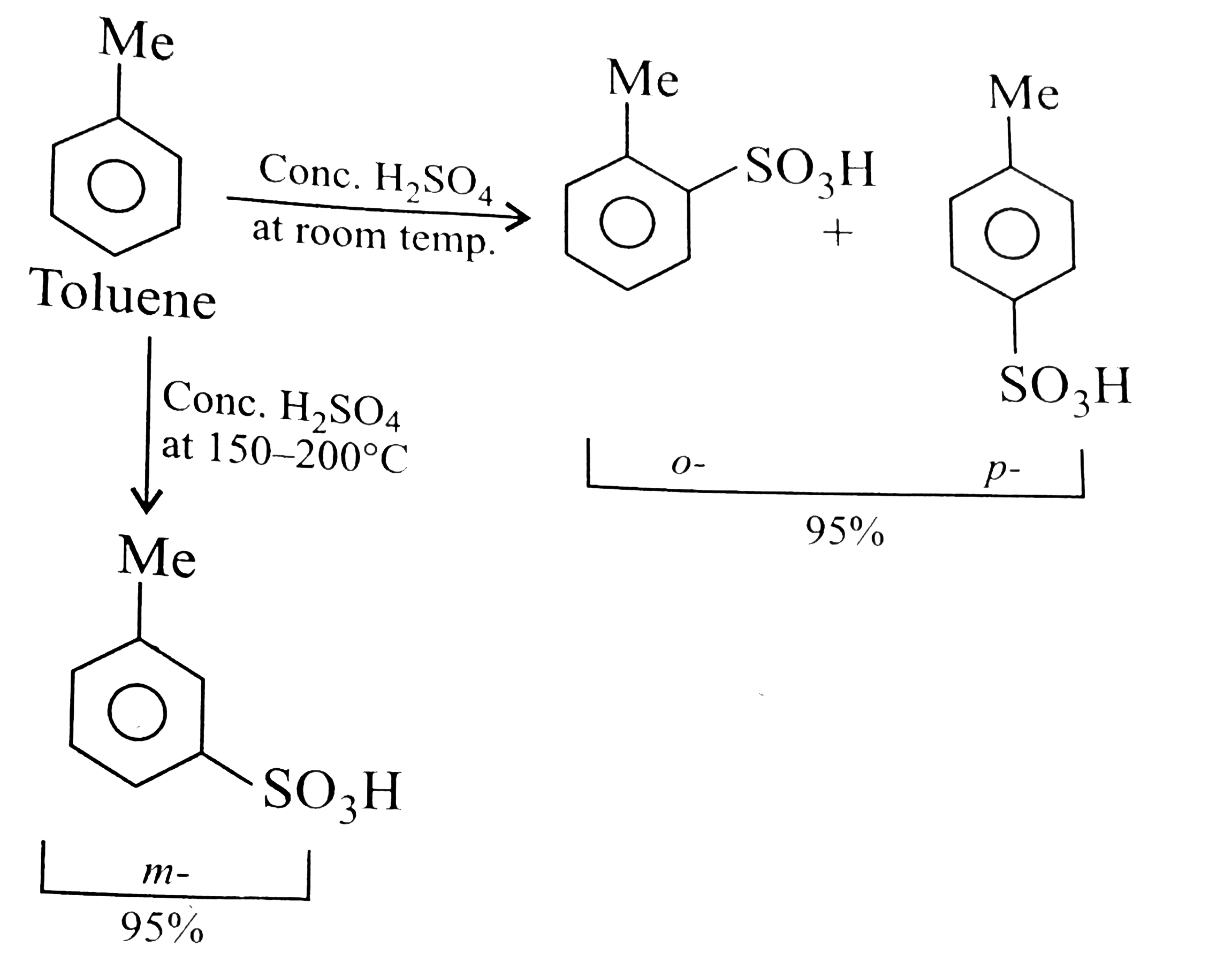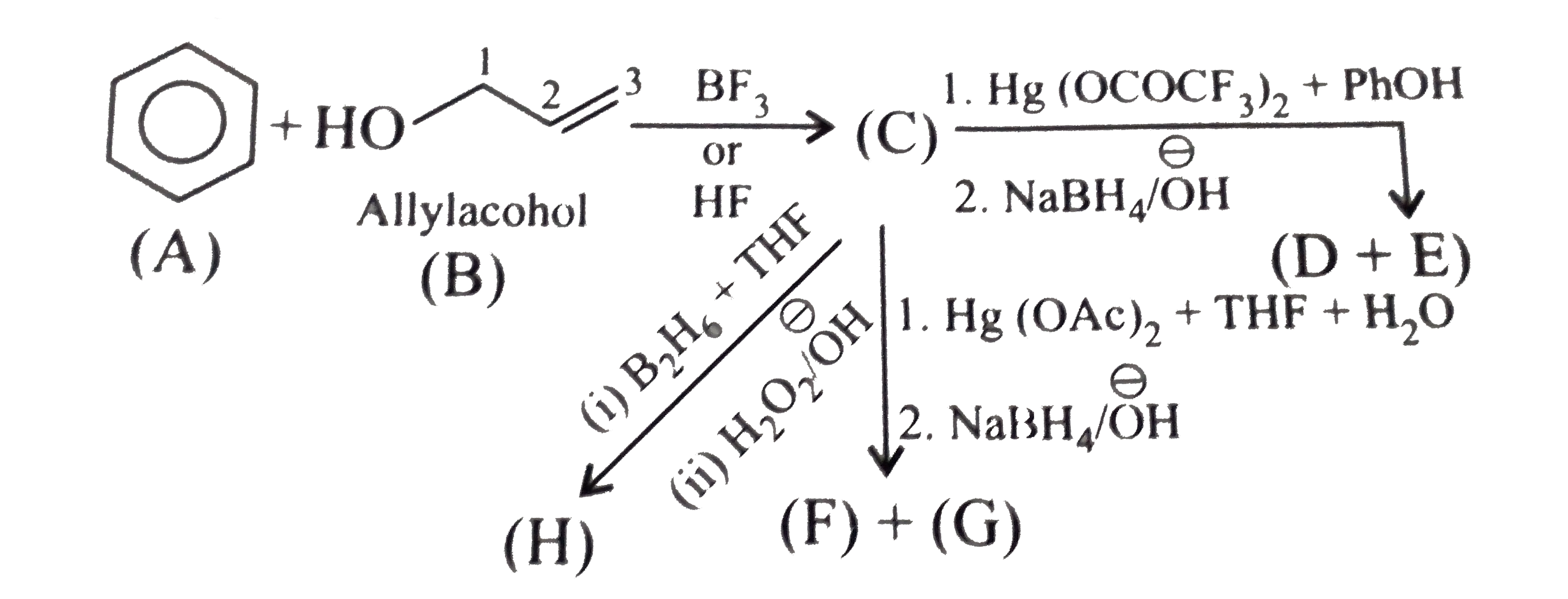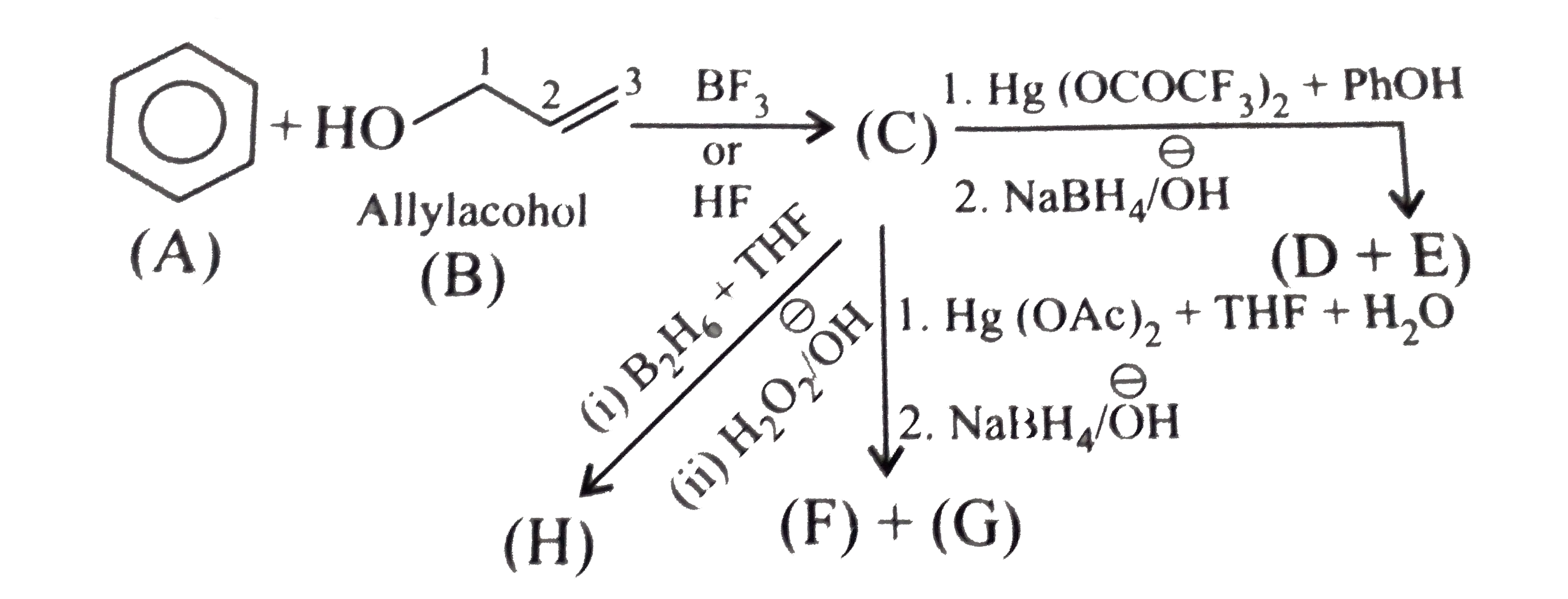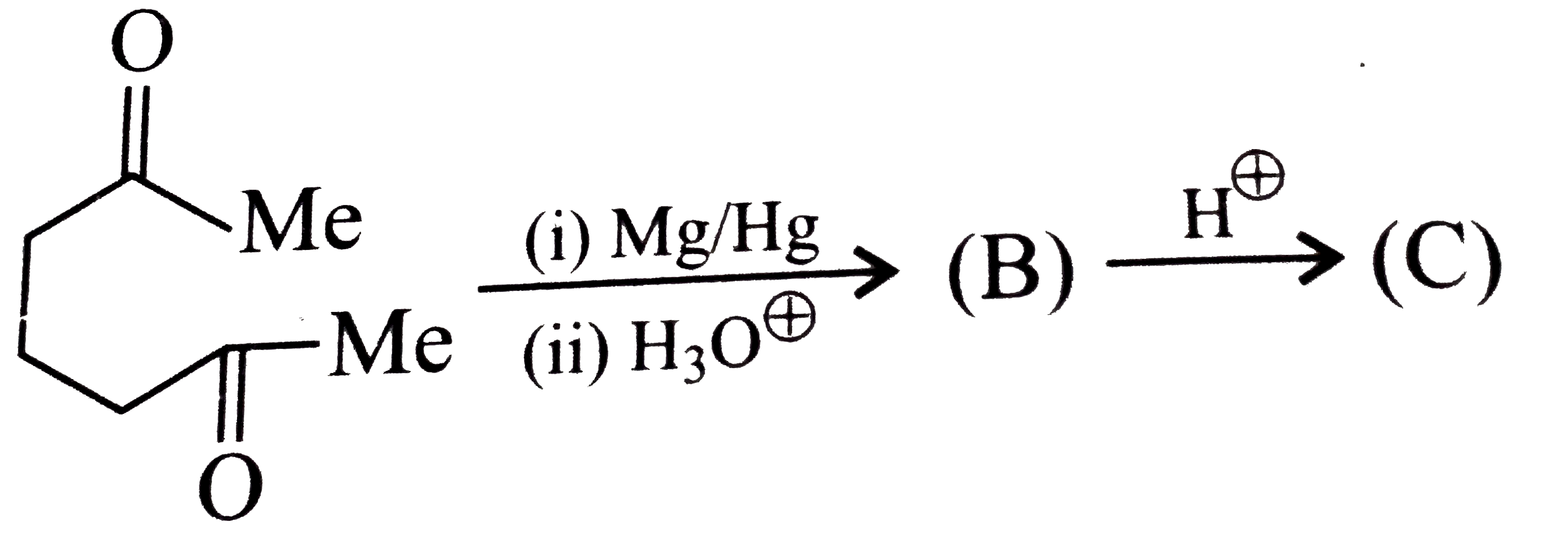
Which of the following staements is wrong about the reactions?
At lower temperature, the reaction is kinetically controlled and o/p directive effects of the (Me) group operate.
At a higher temperature, the reaction is thermo-dynamically controlled, adnn longer reaction times are employed for equilibrium to be reached . The most stable from of m− toulene sulphonic acid is obtained.
(Me−) group is activated by +I effect, and o−,p− directing.
(Me−) group is deactivating by hyperconjugation and is m− directing.
The correct Answer is:d
All the staments are self-explanatory.
Topper's Solved these Questions
- AROMATIC COMPOUNDS AND ALKYL AND ARYL HALIDES BOOK - CENGAGE CHEMISTRYCHAPTER - AROMATIC COMPOUNDS AND ALKYL AND ARYL HALIDES EXERCISE - Exercises Assertion-Resoning Type
1 Videos
- AROMATIC COMPOUNDS AND ALKYL AND ARYL HALIDES BOOK - CENGAGE CHEMISTRYCHAPTER - AROMATIC COMPOUNDS AND ALKYL AND ARYL HALIDES EXERCISE - Exercises Assertion-Resoning
12 Videos
- AROMATIC COMPOUNDS AND ALKYL AND ARYL HALIDES BOOK - CENGAGE CHEMISTRYCHAPTER - AROMATIC COMPOUNDS AND ALKYL AND ARYL HALIDES EXERCISE - Exercises Single Correct
161 Videos
- APPENDIX INORGANIC VOLUME 2BOOK - CENGAGE CHEMISTRYCHAPTER - APPENDIX INORGANIC VOLUME 2EXERCISE - Short Answer Type
179 Videos
- BIOMOLECULESBOOK - CENGAGE CHEMISTRYCHAPTER - BIOMOLECULESEXERCISE - Exercises Archives (Analytical And Descriptive)
8 Videos
Similar Questions

The reaction (C ) to (F and G) is called mercuration-demercuration reaction. Which of the following statements is wrong about the reaction.
View Solution
The reaction (C ) to (D) and (E ) is called alkoxy mercuration-demercuration reaction. Which of the following statement, is wrong about the reaction ?
View Solution
Knowledge Check

The reaction (C ) to (F and G) is called mercuration-demercuration reaction. Which of the following statements is wrong about the reaction.AThe reaction proceeds via the formation of mercurinium ion as an intermediate.BThe electrophile is H⊕gOAc.CIn the final step, Hg1+ is reduced to Hgo.DIn the final step, Hg2+ is reduced to Hgo.
The reaction (C ) to (D) and (E ) is called alkoxy mercuration-demercuration reaction. Which of the following statement, is wrong about the reaction ?AIn the first step, alkoxy meruration occues, i.e., Hg(Oac)2 or Hg(OCOCF3)2 and ROH/ArOH add to the double bond.BIn the second step, demecuration occurs, i.e., NaBH4 reduces, HgOAc or Hg(OCOCF3) group to hydrogen.CThe net reaction is addition of ROH/ArOH accor-ding to Markovnikov's rule.DRearrangement takes place.Which of the following statements is wrong about reactions ?
AThere can be only three values of molecularity, that is 1,2,and 3 .BThere can be only four values of order , that is 0,1,2 and 3 .CThere can infinite number of values for order .DThe order involves rate while molecularity does not.
Which of the following statement is wrong about Eutrophication.
View SolutionWhich of the following statements is wrong about bryophytes
View SolutionWhich of the following statements are wrong about the given reaction ?

View SolutionWhich of the following staements is correct ?
View SolutionWhich of the following statements is wrong about BCl3 ?
View Solution
